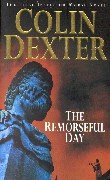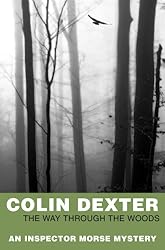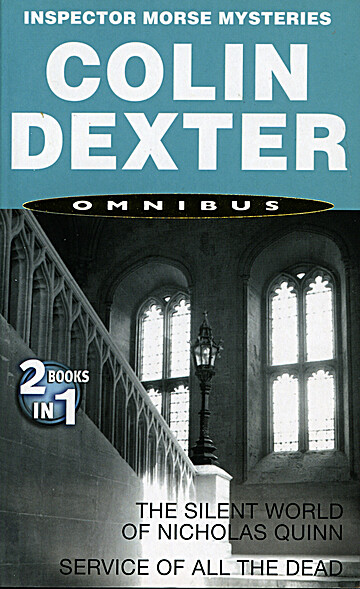
Every Friday Book Beginnings on Friday is hosted by Gillion at Rose City Reader where you can share the first sentence (or so) of the book you are reading. You can also share from a book you want to highlight just because it caught your fancy.
I began reading Colin Dexter’s Inspector Morse books years ago and have read 9 of the 13 books in the series, mostly out of order, so I’ve been reading the earlier books to fill in the gaps, as it were. Chief Inspector Morse is one of my favourite fictional detectives (maybe even the favourite). I first ‘met’ him years ago in the ITV series Inspector Morse and so, just as Joan Hickson is forever in my mind as Miss Marple and David Suchet is Poirot, John Thaw is Morse. This post is about the 11th book The Daughters of Cain.

It begins with a Prolegomena ie Prologue
Natales grate numeras?
(Do you count your birthdays with gratitude?)
(Horace, Epistles II)On Mondays to Fridays it was fifty-fifty whether the postman called before Julia Stevens left for school.
Julia is a teacher, not a pupil.

Also every Friday there is The Friday 56, hosted by Freda at Freda’s Voice, where you grab a book and turn to page 56 (or 56% of an eBook), find one or more interesting sentences (no spoilers), and post them.
Page 56:
She’d never loved anyone in life really – except for her mum. But amongst her clients, that rather endearing, kindly, caring sort of idiot, Felix, had perhaps come nearer than anyone.
Synopsis from Goodreads:
Bizarre and bewildering – that’s what so many murder investigations in the past had proved to be… In this respect, at least, Lewis was correct in his thinking. What he could not have known was what unprecedented anguish the present case would cause to Morse’s soul.
Chief Superintendent Strange’s opinion was that too little progress had been made since the discovery of a corpse in a North Oxford flat. The victim had been killed by a single stab wound to the stomach. Yet the police had no weapon, no suspect, no motive.
Within days of taking over the case Chief Inspector Morse and Sergeant Lewis uncover startling new information about the life and death of Dr Felix McClure. When another body is discovered Morse suddenly finds himself with rather too many suspects. For once, he can see no solution. But then he receives a letter containing a declaration of love…
What do you think? Have you read this book – or any of the Inspector Morse books?


 I really enjoyed reading Colin Dexter’s
I really enjoyed reading Colin Dexter’s 

